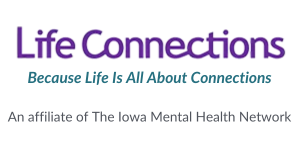We often envision progress as a straight line, a steady upward climb towards our goals. We picture ourselves diligently checking off tasks, achieving milestones one after another, and ultimately reaching the pinnacle of success with a sense of accomplishment. However, the reality of progress is far more nuanced and rarely resembles this linear ideal. The truth is, progress isn’t linear.
Progress is a meandering journey with twists, turns, and even occasional steps backward. There will be periods of rapid growth, followed by plateaus or even setbacks. This nonlinear nature of progress can be frustrating and discouraging, especially when we compare ourselves to the seemingly linear journeys portrayed on social media or in fictional narratives.
But understanding and embracing non-linear progress is crucial for maintaining motivation, building resilience, and ultimately, achieving our goals.
By recognizing that progress isn’t linear, we can:
- Celebrate small wins: Every step forward, no matter how small, is a testament to your effort and dedication.
- Embrace setbacks as learning opportunities: View challenges as opportunities to learn, adapt, and develop new strategies.
- Focus on the process, not just the outcome: Enjoy the journey of learning and growth, not just the end goal.
- Maintain a growth mindset: Believe in your ability to learn and improve, even when faced with setbacks.
Q&A: Understanding Non-Linear Progress
What does “progress isn’t linear” mean?
Progress isn’t linear means that progress towards a goal doesn’t always follow a straight, constantly upward trajectory. It can involve periods of slow progress, plateaus, and even setbacks before reaching the desired outcome.
Who said progress isn’t linear?
This concept has been expressed by many individuals throughout history, including:
- Albert Einstein: “The important thing is not to stop questioning. Curiosity has its own reason for existing.”
- Nelson Mandela: “It always seems impossible until it’s done.”
- Maya Angelou: “I learned that the most difficult victories in life are the ones over our own selves.”
What does progress linear mean?
Progress linear represents a misconception about the nature of growth and development. It paints an overly simplistic picture of achieving goals, portraying progress as a straight line that consistently ascends towards the desired outcome.
This linear view implies:
- Constant and steady improvement: Progress occurs at a consistent pace, with each step forward leading directly to the next, like climbing a staircase with uniform steps.
- Absence of setbacks: This perspective ignores the possibility of challenges, obstacles, or setbacks that can disrupt the forward momentum.
- Predictability in the progress path: The linear view assumes a predictable and predefined path towards the goal, with each step clearly mapped out.
However, this linear view is far from reality. In almost any endeavor, whether learning a new skill, pursuing a career goal, or even personal growth, progress rarely follows a straight line.
The reality is often characterized by:
- Fluctuations in progress: There will be periods of rapid advancement, followed by plateaus where progress seems to stall, and even occasional setbacks that require adapting and regrouping.
- Unforeseen challenges: The journey towards a goal rarely unfolds exactly as planned. Unexpected obstacles and challenges can arise, requiring flexibility and adjustments to the approach.
- Learning from setbacks: Setbacks, while discouraging, are often valuable learning opportunities. They provide insights into weaknesses, allow for refining strategies, and ultimately contribute to future growth.
It’s important to understand that progress isn’t linear because this misconception can have detrimental effects:
- Discouragement: When comparing ourselves to the illusory linear progress often portrayed in media or by others, we might feel discouraged by the uneven nature of our own progress.
- Loss of motivation: The expectation of constant upward progress can lead to demotivation when faced with inevitable setbacks or plateaus.
- Ignoring valuable lessons: Viewing setbacks as failures instead of learning opportunities hinders our growth and development.
By acknowledging the non-linear nature of progress, we can cultivate a more realistic and sustainable approach to achieving our goals. This includes:
- Celebrating small wins: Recognizing and celebrating even minor advancements keeps us motivated and acknowledges the effort invested.
- Embracing setbacks as learning experiences: Viewing challenges as opportunities to learn and adapt fosters resilience and allows for course correction.
- Focusing on the journey, not just the destination: Appreciating the process of learning and growth, rather than solely focusing on the end goal, leads to a more fulfilling experience.
Remember, progress isn’t linear, and that’s okay.
Embrace the unpredictable nature of the journey, learn from your experiences, and celebrate your progress, big or small. This is the true path to achieving your goals and fostering sustainable growth.
What does “growth is not linear” mean?
The statement “growth isn’t linear” transcends a simple observation about progress. It delves into the dynamic and multifaceted nature of personal and professional development.
While progress may be the outward manifestation of growth, the journey behind it is rarely a straight line.
Understanding what “growth isn’t linear” means involves acknowledging several key aspects:
- Unpredictable Pace: Growth doesn’t unfold at a consistent or predictable speed. There will be periods of exponential learning and development, where you experience significant leaps in skill, knowledge, or understanding. These periods are often followed by plateaus, where progress seems to slow down or even stall. This doesn’t signify stagnation; it’s a crucial phase of consolidation where your newly acquired knowledge or skills become deeply embedded.
- Embrace Setbacks as Stepping Stones: Growth is not without its challenges and setbacks. These setbacks, while seemingly disruptive, are often valuable learning opportunities. They reveal your weaknesses, expose areas requiring further development, and allow you to refine your approach. By embracing these setbacks as stepping stones, you can emerge stronger, more resilient, and equipped to handle future challenges.
- Focus on the Journey: When you view growth as a linear process, the sole focus becomes reaching the end goal. However, the true essence of growth lies in embracing the journey itself. This involves enjoying the process of learning, experimenting, and overcoming challenges. It’s about celebrating small wins, acknowledging your effort, and finding joy in the act of becoming.
- Individualized Paths: Growth is a unique and personalized experience. Comparing your journey to someone else’s, especially in the context of a linear timeline, can be misleading and discouraging. Remember, everyone learns and grows at their own pace, and your path will be unique to you.
Embracing the non-linear nature of growth empowers you to:
- Cultivate a growth mindset: Believing in your ability to learn and improve, even when faced with setbacks, fosters resilience and perseverance.
- Maintain motivation: Recognizing that progress isn’t always visible motivates you to continue putting in the effort, knowing that even small steps contribute to your overall growth.
- Celebrate progress, big or small: Acknowledge and celebrate every step forward, no matter how insignificant it may seem. These celebrations reinforce positive behaviors and fuel your motivation to keep learning and growing.
Remember, growth isn’t a race, and it certainly isn’t a straight line. It’s a continuous and dynamic process filled with its own unique rhythm and pace. By embracing the non-linear nature of growth, you can navigate your journey with greater understanding, resilience, and a sense of fulfillment.
Because Life is All About Connections
Life Connections provides mental health services in our 13 office locations and approved schools across Iowa. Life Connections was founded in March of 2009 with the intent to serve the children and families of Cedar Rapids and surrounding cities.
Life Connections is a highly professional and caring counseling and behavioral health provider. We offer a wide array of services to treat mental health issues.
For more information and support, please Contact Us
Start Your Services
Start Mental & Behavioral Health Services with Life Connections | Because life is all about connections.

